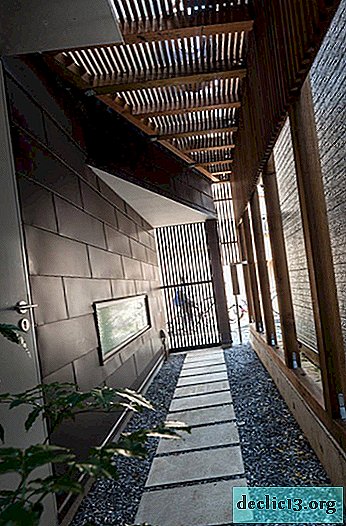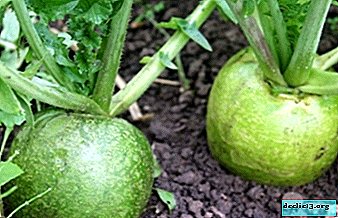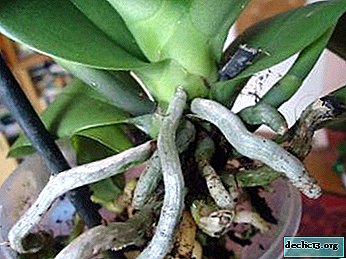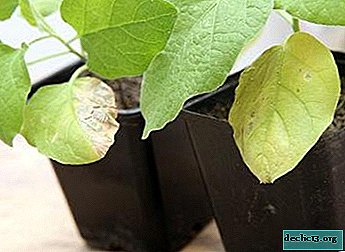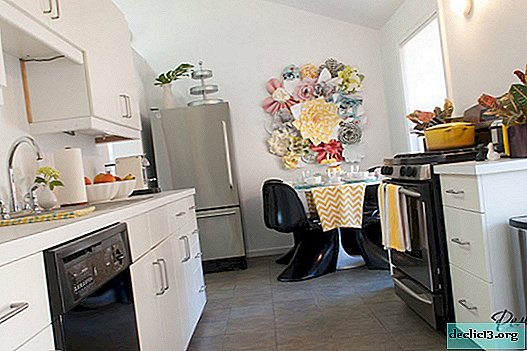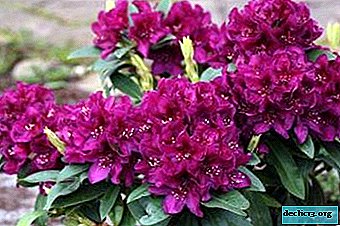Pelargonium - care and reproduction at home

Each grower is familiar with pelargonium, which is also called geranium or kalachik. An unpretentious flower with terry fragrant foliage and large inflorescences from small flowers. Geranium is incredibly useful. It kills germs, neutralizes poisons and relieves headaches. Beginners are interested in ways to grow pelargonium from seeds at home.
The popularity of pelargonium is due to the ease of care and excellent decorative qualities. Growing geraniums from seeds is a fascinating process, requiring a bit of free time and good seed material. Varieties of white, red, fragrant and ampelic pelargonium are suitable for growing seeds.
Seed Growing Tips and Plan
- Using purchased seeds allows you to skip the preparatory phase. If the seed material is collected independently, each seed is treated with sandpaper. Removing the upper hard layer accelerates the germination process.
- There are no specific dates for sowing pelargonium seeds for seedlings. Experienced flower growers carry out the procedure in the cold season. The ideal option is December.
- For germination of pelargonium seeds, you can use several soil mixtures. The first option - mixing sand and peat in equal amounts, the second - peat and perlite equally, the third - peat, sand and turf in a ratio of 1: 1: 2.
- Process the seed material with zircon, soak in water for three hours and only then plant it. Strongly deepen the seeds into the soil is not necessary. Lay them out at a distance of five centimeters from each other and cover them with a centimeter layer of soil. Next, moisten the soil with a spray gun and cover with glass.
- The ideal temperature is 20 degrees. The seed box is kept in a bright place, but not in direct sunlight. The first shoots appear in a week. Dive young plants after half a month. At this point, the sprouts will have a few leaves.
- Each sprout is planted in a separate pot with a diameter of about 10 centimeters with prepared soil. Pelargonium is pinched to suspend growth when 7 or more leaves appear.
Video tips
Growing pelargonium from seed material at home is a trifling matter. Already a quarter after planting seeds, young plants will delight you with incredibly beautiful flowering.
Pelargonium care at home

Pelargonium is an easy-to-care flower, but this does not mean that you do not need to take care of it. Compliance with the undemanding requirements for flower care will allow you to admire the beauty of a lush flowering plant throughout the year.
- Lighting. Pelargonium is a photophilous flower. Unlike other indoor plants, she is not afraid of direct rays of the sun, and with insufficient lighting, flowers and leaves lose their bright color.
- Temperature. Pelargonium is recommended to grow in moderate temperatures. In the summer at 20 degrees. In winter - within 10 degrees.
- Watering. Abundant watering in summer, moderate in winter. It is advisable to drain excess fluid, since stagnation of moisture leads to decay of the root system. Overmoistening is more dangerous for geraniums than a lack of moisture. Spraying, unlike monstera, is not necessary.
- Top dressing. They are fed twice a month with universal or special fertilizers for pelargonium.
- The soil. Geraniums are usually planted in a universal earthen mixture with good drainage. I have already mentioned that excess moisture is extremely dangerous for the plant and can lead to death.
- Transfer. When the pot becomes cramped the plant is transplanted. Do it in the spring. Periodically, it is recommended to renew the topsoil. It is enough to remove a few centimeters of the earth and add a fresh substrate.
- Maintaining the shape of the bush. To form an even and beautiful crown shape, watch for growth. On one shoot there should be no more than ten sheets. To maintain the shape of the bush, pinch at the right level and remove the shoots that violate the beauty.
Subject to the above conditions, pelargonium blooms luxuriantly and for a long time. To collect seed material from a faded flower, wait until the seed bolls turn a tan. Remember, seeds that have fallen to the ground are not suitable for storage, especially if they have sprouted.
Propagation of pelargonium
Pelargonium is a favorite of ornamental plant breeders. During the flowering period, it throws out bright inflorescences and smells of pleasant aroma. This unique smell cheers up and invigorates, and the flower fills the interior with bright colors.
The homeland of geranium is hot Africa, but this did not stop the flower from taking root in our country. Reproduction of pelargonium is quite simple. You can grow a young plant from seed material, cuttings or process.
The first way - cuttings
This method is the simplest and most effective. Propagation of pelargonium by cuttings is recommended in the fall. Gently cut the handle and dry it slightly before planting. Next, place in the substrate. Water rarely, and do not spray. Pelargonium propagated by the cuttings is resistant to diseases.
People who do not like to bother can use the grandfather method. Cut the cuttings in the spring and put in a jar filled with water. The first roots will appear in a week.
The second method is seed
Seeds are planted in December, since in January, daylight hours will begin to increase. This will contribute to active growth, and by early May receive an adult plant.
The third way - leaves and processes
The technology of propagation of pelargonium by leaflets and processes is identical to cuttings. By effectiveness, these methods are not inferior to Cherenkov. Leaves and processes with roots are rooted in a glass of water, with the addition of phytohormones.
Video about the care and reproduction of pelargonium
Types and varieties of geraniums

From South Africa, geranium was brought to Europe, where at the beginning of the seventeenth century it received the status of a cultivated plant. Due to the peculiar aroma and decorativeness, the flower became popular among aristocrats, and later appeared in the homes of ordinary people.
In our country, pelargonium appeared in the eighteenth century. It took her less than a hundred years to “conquer” the territory of Russia and become a favorite flower among the population. This was facilitated by unpretentiousness, active growth and beautiful flowering, with which only the phelanopsis orchid competes.
About 250 species of pelargonium are secreted in nature. Through the efforts of breeders, new species and varieties of geraniums suitable for growing indoors have appeared. It is about them that I will tell.
- Zonal. The most numerous and common species represented by many varieties. Characterized by abundant and persistent flowering. Representatives of the species have a straight trunk and wavy leaves with a red-brown border. The foliage is pubescent and gives off a peculiar smell.
- Royal. FROMread by the most beautiful representative of the genus. Large flowers are purple, burgundy, red, pink or white. The height of the flower reaches 50 centimeters. This type of home geranium is the most whimsical and is characterized by short flowering.
- Fragrant. The most unusual aroma. After touching the foliage, a smell spreads around the room, in which notes of strawberry, ginger, mint, lemon and rose are recognized. Small purple or pink flowers and cirrus incisor leaves. In the culture there are varieties Diamond, Lady Plymouth, Chocolate Mint.
- Ampelic. A herbaceous plant with long shoots and dark green star-shaped foliage. The amazingly beautiful inflorescences consist of simple, double or mother-of-pearl flowers with a diameter of 4 cm. Ampelic pelargonium blooms from spring to autumn. Perfect for decorating loggias and balconies.
- Angel. The color height is up to 30 cm. It is characterized by elegant forms, frequent branching and easy care. It blooms throughout the summer. Sometimes the flowering is so strong that the inflorescences almost completely cover the foliage. Lilac or white flowers are in perfect harmony with small dark green leaves.
- Unique. Homemade geranium obtained by the efforts of breeders. Appreciated for its high decorative effect. Dark green leaves emit a pleasant aroma and complement the beauty of small flowers with a white center and red petals. There are varieties with pink or white flowers, with streaks and spots on the foliage.
- Succulent. The most unusual. The lower part of the stem is lignified. Numerous stems are curved and branched, so that the bush often takes on a bizarre shape. The view is used to create bonsai and decorate houses.
The listed types of room geraniums are best suited for home growing.
Useful properties and harm of room geranium
Pelargonium was previously thought to have an antimicrobial effect and prevent the flu epidemic. There is some truth in this, but this is not all the good of the plant. In nature, there are several hundred species of geraniums. Some of them are suitable for growing on the windowsill, others have found application in the kitchen. I lead to the fact that relatives of the flower have established themselves in the cosmetic, culinary and medical industries.
Beneficial features
Essential oil with antiseptic effect is produced from pelargonium. It is suitable for use in aromatic lamps in seasonal epidemics. Oil is applied to handkerchiefs and masks during the prevention of colds.
The geranium ether speeds up blood circulation. It is used to prepare home remedies for cellulite. The extract is used by cosmetic companies to produce drainage creams.
Geranium has a calming effect on the body. A few drops in an aromatic lamp soothe nerves and improve sleep. Pelargonium tea, drunk an hour after an evening meal, provides a similar effect.
On the basis of young leaves, restorative herbal preparations and medicines for tachycardia are made. Patients are advised to keep pelargonium in the bedroom on the windowsill. The plant cleans the air, absorbs toxins and strengthens health.
With stomatitis and tonsillitis, the extract is used to rinse the oral cavity. In pharmacies, a variety of alcoholic tinctures based on pelargonium are sold.
Harm
Geranium essential oil can cause an allergic reaction. If, after contact with a flower or eating an oil-based product, symptoms of a cold appear, it is best to consult an allergist.
Geranium thickens blood. It is contraindicated in people with blood diseases. It is not recommended to combine oil with blood-thickening drugs.
Tinctures from pelargonium leaves are prohibited with pressure-lowering drugs, since the leaves of the plant provide a hypotonic effect. It is better to refuse a tincture of geranium at low pressure. Regarding the use of folk remedies, be sure to consult a doctor.
Breeding problems

With proper care, pelargonium is rarely sick. If problems in breeding geraniums occur, timely help will save the flower. Usually the appearance of diseases is the result of improper care: high humidity, poor lighting. Ornamental plants can attack viruses that infect through the soil. We will figure out how to solve such problems.
- Nematodes. The most dangerous enemy of geranium and anthurium, since a flower dies when it is defeated. A clear sign of the disease are massive nodes on the root system. Soil becomes unsuitable for growing any plant and must be disposed of.
- Fungal diseases - rust, root, gray rot. Such problems indicate the waterlogging of the plant and the lack of good drainage.
- Pests - ticks and aphids. All flower growers growing croton, dieffenbachia or dracaena are familiar with pests. Standard methods are suitable for controlling insects. A solution of laundry soap will save aphids, ticks will be overcome by running water.
- Whitefly The most serious pest to cope with which is not easy. The most harmful are the larvae that live on the lower surface of the leaves. They pull out all the juices from the pelargonium and pollute the leaves with secretions that contribute to the development of the fungus. Special drugs - Bison, Actellik, Confidor - will help overcome whiteflies.
- If the geranium leaves turn yellow and fall, this is the result of poor lighting, excessive or insufficient watering. Therefore, pelargonium must provide optimal conditions.
- Reddened leaves the plant reports that it is cold. To fix the problem, it is enough to rearrange the pot in a warm place.
- If the geranium refuses to bloom, a lack of light or a low temperature is to blame. Once in comfortable conditions, she immediately begins to throw flowers.
Now you know the secrets of caring for geraniums and how to resolve problems that arise during breeding. I think you can easily grow beautiful pelargonium, which will replenish your home collection of ornamental plants.
Traditional medicine recipes with geraniums
It is hard to believe that the usual pelargonium present in almost every home is a fast-acting and miraculous doctor. Under multi-colored inflorescences and a delicate aroma, a power is hiding, ready at any moment to help a person.
People from time immemorial have been using geraniums to treat diseases. It is not surprising, because the plant contains phytoncides, pectin, which cleanses the body of toxins, essential oils, gum, gallic acids, starch and other substances that heal the body. At hand, you only need recipes for traditional medicine with geraniums.
For face
Pure essential oil on the face is not used, as it can cause irritation or burns. Geranium ester is used as an ingredient for the preparation of creams, masks and oils. I offer recipes for the use of pelargonium for the face.
- Geranium oil will help get rid of acne and acne. Using a cotton swab, apply oil on the affected area. The procedure is repeated several times a day until complete healing.
- For sensitive skin make a soothing and nourishing mask of pelargonium. Mix a spoonful of coconut oil with two drops of geranium oil and the same amount of sandalwood oil. The product is applied to the face twice a week for a third of an hour.
- A paste made from the pulp of a quarter of avocado and juniper, rose and geranium oils in a ratio of 2: 2: 3 will help to solve the problem with frequent peeling. After 20 minutes, rinse off the mask with warm water.
- An aging and aging face skin will tone the mixture, which includes three tablespoons of olive base, pink and geranium oil in equal proportions. To become younger use the tool daily.
- In the fight against dryness and flabbiness, a mixture prepared from 150 ml of mineralized water and oils of chamomile, lavender and geranium, which take three drops, will help. Moisturize the skin three times a day with a spray bottle. Do not rinse.
The complex use of “geranium” means will help to achieve the result faster and make it more noticeable. It is hard to imagine how soft and silky the skin will become after that.
For hair
Geranium ether is used in homemade hair recipes. It is enough to add a couple of drops of oil to the purchased mask or shampoo, mix thoroughly and use as directed.This simple technique will help to strengthen the follicles, eliminate excessive oily hair and get rid of dandruff.
- Geranium oil is ideal for aromatic combing. In the oil, lightly moisten the comb and comb the hair. Daily procedure will provide hair shine and delicate aroma for the whole day.
- Geranium oil helps get rid of lice. Pelargonium oil is mixed equally with oils of lavender, tea tree, bergamot and combined with base oil. To process hair with a ready-made mixture, and after an hour, wash your hair and comb thoroughly the hair.
- An excellent decoction is made from geraniums. Five tablespoons of pelargonium pour two cups of water, boil for 5 minutes, insist for an hour and use to wash your hair for a month. This will cure hair loss, accelerate growth and relieve diseases of the scalp.
With otitis media
Geraniums have been widely used in folk medicine. The miraculous properties with a unique chemical composition help treat even otitis media. On the basis of pelargonium, tinctures, drops and ointments are prepared, which are incredibly effective in this disease.
- Squeeze the freshly picked leaf of geranium slightly, roll it up with a tight roll and carefully insert into the ear. Thanks to this simple procedure, pain will be significantly reduced.
- In the fight against otitis media, such a tool is also used. From five grams of geranium leaves, make gruel, combine with 50 grams of rye flour, add a spoonful of camphor oil and knead the dough. Roll up the mixture and wrap it with a sore ear.
- With otitis media, geranium juice will also help, which is instilled in the ear 2 drops. Further, the inflamed organ is wrapped with compress paper and insulated with cotton. Before going to bed, bandage the affected ear. Two to three procedures will eliminate shooting pains.
Geranium is incredibly effective for otitis media, but sometimes unsafe. With extreme caution, it is necessary to use funds from pelargonium for the treatment of pregnant women and children. Before starting treatment, be sure to consult your doctor.
With infertility
Married couples seeking to become parents use all sorts of ways and means. Infertility is usually caused by endocrine disorders, poor sperm motility, and inflammatory processes in the genitals.
Modern methods of treatment solve the problem, but traditional medicine recipes remain popular and significant. Geranium occupies a leading position among herbs that help cope with infertility. Pelargonium helps to restore reproductive function, normalizes hormonal levels and eliminates inflammatory processes.
- Geranium essential oil helps to overcome depression, make menstruation less painful, cure sexual disorders. When fighting infertility, geranium must be present in the house so that the inhabitants constantly inhale its aroma.
- Pelargonium oil is an aromatic therapy. The smell affects girls as a sex-enhancing agent and increases vitality.
- Such a remedy will also help to cope with infertility. A stack of warm water mixed with 4 drops of geranium oil, add a spoonful of honey. Take the drug before every meal. If the problem is caused by vaginitis, instead of honey, add a spoonful of soda to the product and use a solution for douching.
According to the healers, these funds help couples achieve their goals and cure infertility. You can’t use these folk remedies without consulting a doctor.
Interesting facts and legends about home geraniums
Pelargonium, in the form familiar to us, was brought out by a breeder from England George Tradescan. He was fond of breeding geraniums and called his creations butterflies or angels. The peak of his skill is considered the royal geranium, which helped the English king to cope with insomnia.
According to one legend, during the flight, the crane fought off the flock and landed in the field. His body froze due to the cold rain. A teardrop rolled out of the eyes of the dying bird, and in the place of its contact with the ground in the spring a beautiful plant appeared, which was called geranium.
Eastern legend says that in the old days, pelargonium was considered an ordinary weed until the Prophet Mohammed hung it on his wet cloak. Bush put the garment in the direction of the sun and quickly dried it. In gratitude, the prophet endowed the plant with fragrant flowers.
It is believed that white geranium repels snakes. Therefore, residents of eastern countries put a pot of pelargonium at the entrance to the dwelling. For some peoples, fragrant geranium symbolizes strength, health and vitality.

